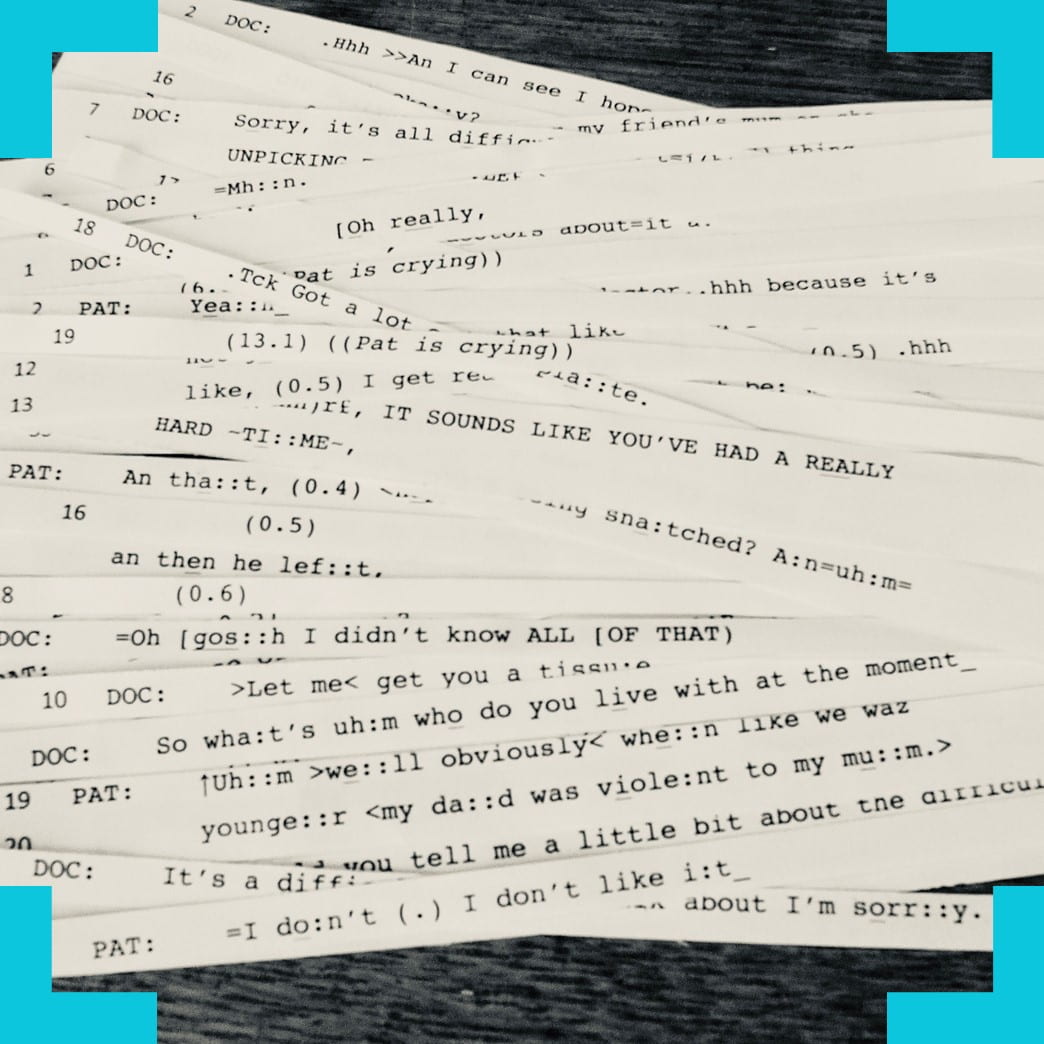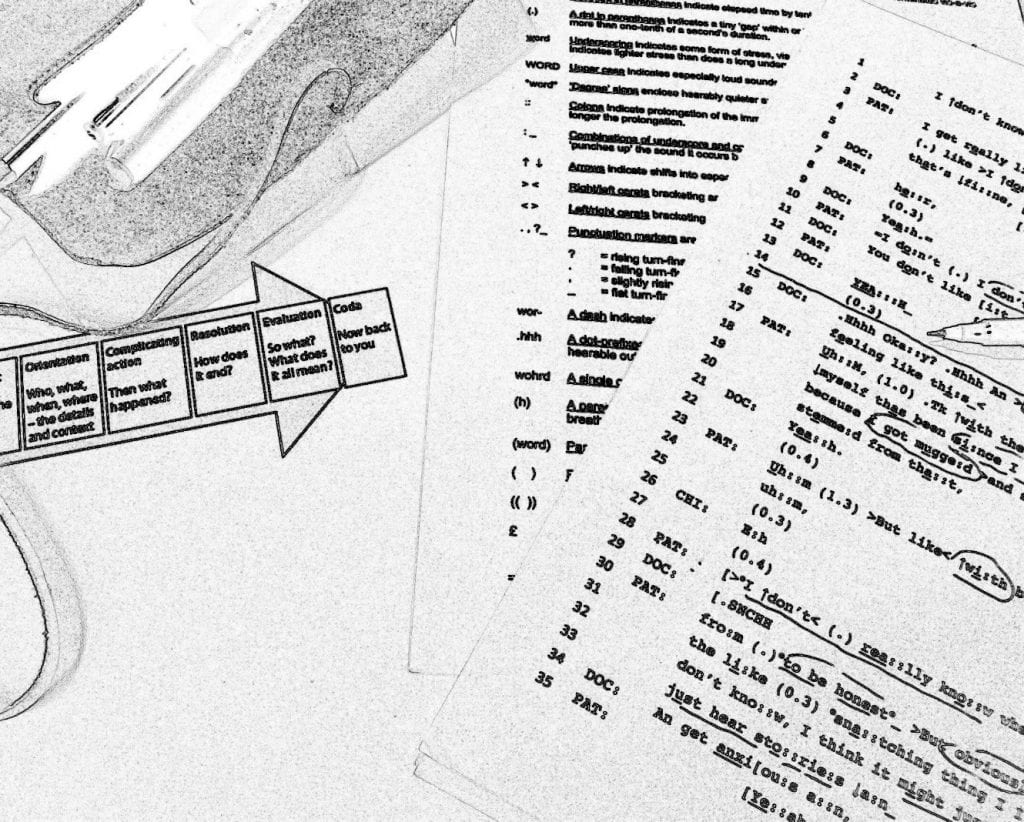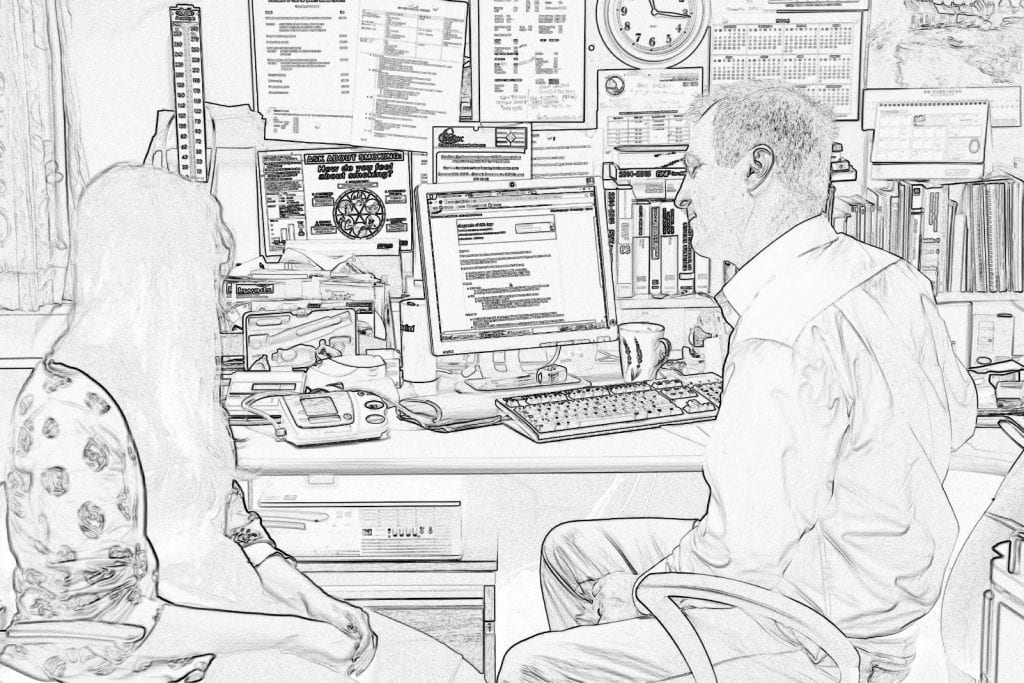Poetics in Practice: narratives of primary care consultations
Can you apply narrative methodology to real life GP consultations and patient histories? This project will use storytelling to create a toolkit that will improve communication when giving and receiving medical histories.

The importance of a GP’s ability to take in, understand and tell stories is well established. GP’s use narratives to give/take medical histories, communicate diagnoses and treatment plans, and within teaching and research. Despite this, narrative research methodologies have only been applied to literary texts.
What did the project involve?
This project was the first to apply narratology tools to ‘real world’ clinical data. It interrogated the theory and practice of narrative ‘poetics’ in GP consultations.
This research used the One in a Million Archive. This Archive consists of 300 video recordings of GP consultations collected from 12 GP surgeries in Bristol over 8 months.
This project emerged from the Brigstow 2018 Idea Exchange “One in a Million: Qualitative Data Archive – ideas exchange to share good practice and widen usership”
Together the team created a new understanding of the narrative dynamics of giving and taking patient histories. They used this to inform creative strategies which they hope will generate significant change in GP consultations. They translated their research into a story book and storytelling toolkit. This toolkit seeks to transform both the patient and the GP’s abilities in giving/receiving patient histories.
Who are the team and what do they bring?
- Genevieve Lively‘s (Classics, University of Bristol) works on narratives and narrative theories both ancient and modern. An acute focus of her research has been developing her narratologically inflected research into artificial humans and AI.
- Barbara Caddick (Population Health Science, University of Bristol) is a researcher in primary care and a social and cultural historian. Previously, she has combined these research interests in an interdisciplinary project with a focus on the history of the management of common infections in primary care.
- Rebecca Barnes (Population Health Science, University of Bristol) is a social scientist and an internationally recognised expert in conversation analytic (CA) methods as applied to communication in primary care settings. Her work focuses on communication in primary care with a view to addressing professional / practical problems, which she approaches as a conversation analyst.
- Daniel Morden is a storyteller. Daniel tells stories in hospices and gave the keynote speech at Storytelling for Health on how storytelling can help patients to construct a new narrative.
What were the results?
Poetics in Practice have created a Storybook about their project so far containing examples of conversation analysis, photos and more:
Poetics in Practice Storybook PDF
The team used this research project as ‘proof of concept’ to create a collaborative grant application for further funding.



